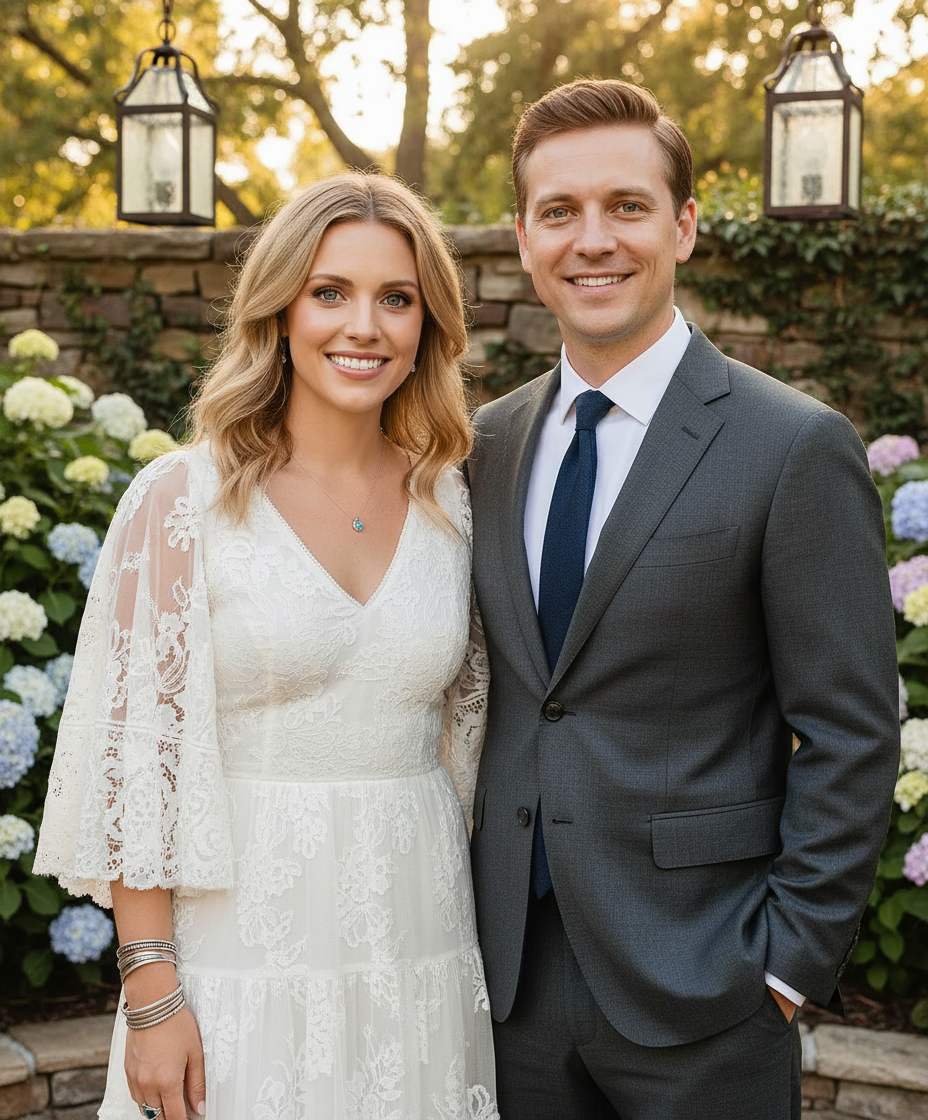The Price of Escape
They had always called her lucky.
Natalie, 32, was the youngest of the four Henderson sisters. Soft-spoken and modest, with chestnut hair tucked behind her ears and timid gray eyes, she’d grown up in a crumbling house on the edge of Blue Ridge. Life there was simple—sometimes unbearably so. Her family stitched together happiness from hand-me-downs and rain-soaked Sundays.
Her cousin Vanessa was the only one who got out.
Vanessa married a Korean businessman and years later returned with flawless skin, luxury bags, and rumors trailing behind her like perfume. She promised Natalie a new beginning. “Marry Korean,” she’d said, wrapping her manicured fingers around Natalie’s worn hands. “You’ll thank me. I’ll set you up with someone dependable.”
Natalie resisted. She was a preschool teacher, sensitive, not built for transactional romance. But poverty can sound like a steady drumbeat in your ears. And eventually, you move.
Lee Jun-seok, an electronics technician from Daegu, was 38, quiet, and seemingly kind. He spoke with careful English, always formal, always thanking her. “You will have security,” he said. That word hit her like a lullaby. Security.
After four months of video calls and translated texts, they married.
The ceremony was held in Blue Ridge’s tiny chapel-turned-community center, transformed with white silk and blue hydrangeas. Natalie stood under two iron lanterns in a lace-trimmed white gown with a long train. Her smile trembled. Around her throat and arms shimmered heavy gold jewelry her groom had mailed from Korea—enough to dazzle the whole town. Everyone said she’d finally made it. Vanessa beamed: “You’ve escaped.”
That night, in the hotel suite they’d booked before flying out, she slipped into silence. The city lights hung beyond thick curtains. Jun-seok stepped out of the bathroom in a pale robe, his hair still wet, and sat cross-legged on the edge of the bed.
She tried to settle, lifting the embroidered sheet. That’s when she noticed it: a thick folder sticking out of his leather luggage, left half-zipped.
Her name was printed at the top.
She blinked, heart stuttering. Her photo. Official-looking papers. Korean script she couldn’t understand, save for a few words printed in English: “Temporary residency – marriage visa applicant.”
Her hands trembled.
She reached further.
Behind that folder—another. This one had a different name. And another photo. Blonde, younger. German.
She stepped back. She looked at him.
Jun-seok kept his gaze on the television.
“How many?” she whispered.
He turned slowly. “You’ll get the documents. Just be quiet, Natalie. Don’t make this difficult.”
She peeled the ring from her finger before dawn, shoved it in his palm, and walked out, past the concierge who had called her “Madam Lee,” and into the freezing night.
The gold stayed behind.
The papers stayed behind.
But her silence didn’t.
When she arrived back to Blue Ridge, the townspeople stared.
“No mansion?”
“Where’s all the gold?”
Her sisters didn’t speak. Vanessa slammed the door.
Natalie wrote down everything. Stacked her account full of names, faces, stories from women across the world.
A week later, the agency shut down.
But it never brought her peace.
Because every time she saw a bride in white lace, she remembered the lanterns glowing above her head and the sound of a zipper opening.
And the price of escape.

Under the Blue Hydrangeas: A New Resolve
The image of the blue hydrangeas haunted Natalie. They bloomed vigorously outside the chapel where she’d once stood, eager and hopeful, clutching that gleaming gold jewelry—now just a bitter memory. The shadows of that night lingered, but so did a burgeoning fire within her.
One cool morning, as the sun warmed the sleepy town, Natalie met with a woman named Grace, a reporter from a nearby city. Grace had heard fragments of Natalie’s story and sought the truth behind the veil of silence. “Tell me everything,” Grace urged gently, “so others won’t suffer as you did.” Natalie’s voice was steady now, the timid gray eyes replaced by determined ones. “It’s not just about me,” she said, “It’s about the countless women trapped in shadows, disguised as safety.”
Meanwhile, Vanessa grappled with her own guilt and fear. At first, she refused to answer calls or look Natalie in the eye. But seeing Natalie’s courage stirred something dormant. One evening, standing in front of the peeling paint on their childhood home’s porch, Vanessa whispered, “Maybe it’s time we fight back together.”
As days blurred into weeks, Natalie organized support groups in Blue Ridge, reaching out to women who had vanished behind smiles and whispered lies. They shared stories under those very iron lanterns, their tears mixing with renewed hope.
That photograph of the newlywed couple—standing close under blue hydrangeas, radiant in white lace and gray suit—became a symbol not of escape, but of resilience. Natalie realized her journey was far from over, but this time, she would write the ending herself.